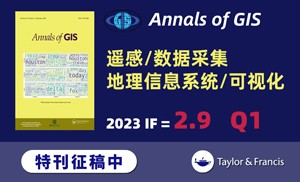Journal of Behavior Therapy and Experimental Psychiatry ( IF 1.7 ) Pub Date : 2021-05-29 , DOI: 10.1016/j.jbtep.2021.101665 R J C Huntjens 1 , G P J Janssen 1 , H Merckelbach 2 , S J Lynn 3
Background and objectives
Anecdotal and research evidence suggests that individuals with dissociative symptoms exhibit hyperassociativity, which might explain several key features of their condition. The aim of our study was to investigate the link between dissociative tendencies and hyperassociativity among college students.
Methods
The study (n = 118) entailed various measures of hyperassociativity, measures of dissociative tendencies, depressive experiences, unusual sleep experiences, cognitive failures, and alexithymia.
Results
We found a positive association between dissociative experiences (i.e., depersonalization) and hyperassociativity specific for associative fluency and associative flexibility tasks (including neutral and valenced material), but not for a remote association task. We also found tentative evidence for cognitive failures and alexithymia explaining the link between hyperassociativity and daytime dissociation and nighttime unusual sleep experiences.
Limitations
Limitations include the use of hyperassociation tasks limited to verbal associations vs. imagistic associations, the lack of a measure of trauma history, and a sample limited to college students.
Conclusion
Our study reports a link between depersonalization and hyperassociativity on tasks that allow for free associations across different semantic domains, potentially explained by alexithymia and cognitive failures. This finding may, with replication, open the pathway to applied intervention studies.
中文翻译:

分离倾向和超联想之间的联系
背景和目标
轶事和研究证据表明,有分离症状的个体表现出过度联想,这可能解释了他们病情的几个关键特征。我们研究的目的是调查大学生的分离倾向和超联想之间的联系。
方法
该研究 (n = 118) 涉及多种超关联性测量、分离倾向测量、抑郁体验、异常睡眠体验、认知障碍和述情障碍。
结果
我们发现分离体验(即人格解体)和超联想性之间存在正相关,特定于联想流畅性和联想灵活性任务(包括中性和价材料),但不适用于远程联想任务。我们还发现了认知障碍和述情障碍的初步证据,解释了过度联想与白天分离和夜间异常睡眠体验之间的联系。
限制
限制包括使用仅限于语言联想与想象联想的超联想任务,缺乏创伤史的测量,以及仅限于大学生的样本。
结论
我们的研究报告了人格解体和超联想之间的联系,这些任务允许跨不同语义域的自由关联,这可能由述情障碍和认知障碍来解释。通过复制,这一发现可能为应用干预研究开辟道路。









































 京公网安备 11010802027423号
京公网安备 11010802027423号